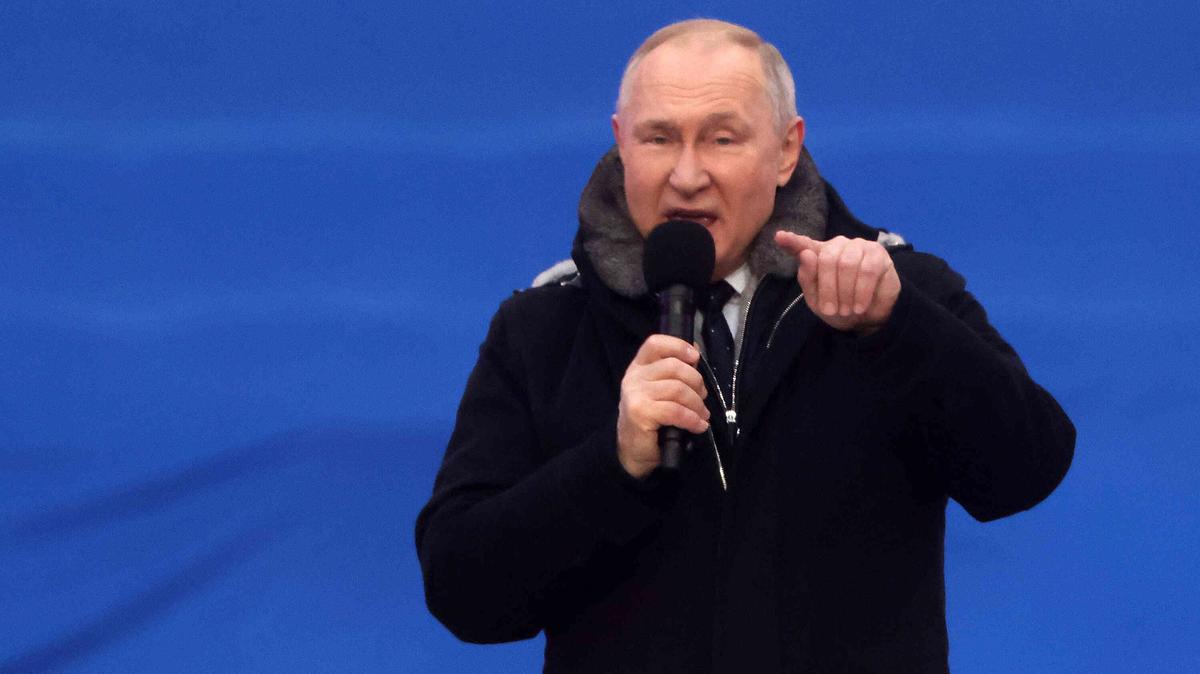Since the beginning of the war in Ukraine, Vladimir Putin’s regime has once again tightened its grip on the opposition and been particularly brutal on everyone who tries to go against it and speak out. Russia’s government shows the most prominent signs of modern-day authoritarianism, although one could say that in the early 2000s, there was still hope for a different future.
How did Russia lose its opportunity to develop into a democratic direction? What are the most likely outcomes of the war in Ukraine? And what conclusions are going to be drawn from this war by modern-day dictators? That’s what we discussed with Daniel Treisman, a UCLA professor of political science and a co-author of Spin Dictators: The Changing Face of Tyranny in the 21st Century.
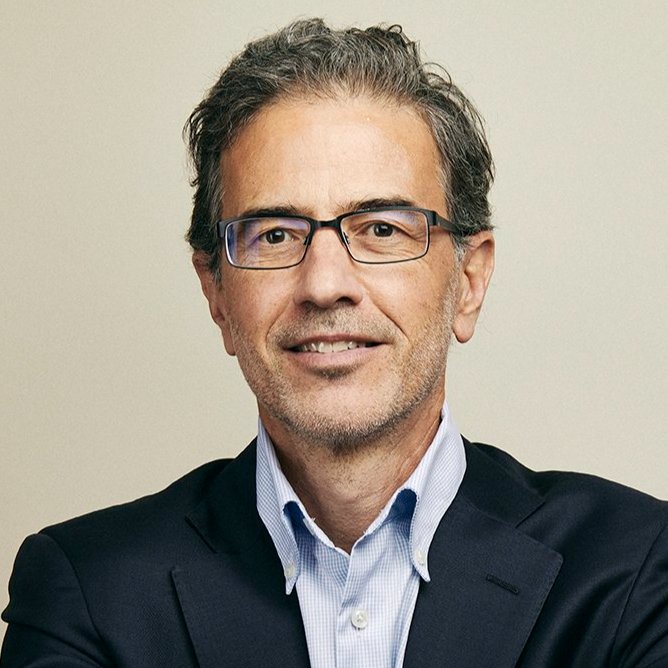
Daniel Treisman
UCLA professor of political science
The spectrum of dictatorship
In your most recent book Spin Dictators, written with Sergei Guriev, you argue that modern-day authoritarian leaders are way more flexible and smart than their 20th-century counterparts. However, looking at, for example, Putin’s decision to invade Ukraine, one could doubt it was very clever of him. What’s so smart about modern-day dictators?
In the book, we talk about two types of dictators, obviously simplifying things quite a bit. We distinguish what we call fear dictators, which were the classic authoritarian leaders of the 20th century. They often used a great deal of violent repression. People like Stalin, Hitler, and Mao, who imprisoned millions of people, killed political opponents, or just innocent people, and even other authoritarian leaders like Pinochet or the generals in Argentina, Mobutu in Africa, Idi Amin in Uganda. They may not have been totalitarian in the way that Mao or Stalin were, but they still used a great deal of violent repression. Their aim was to spread fear and control the population in that way.
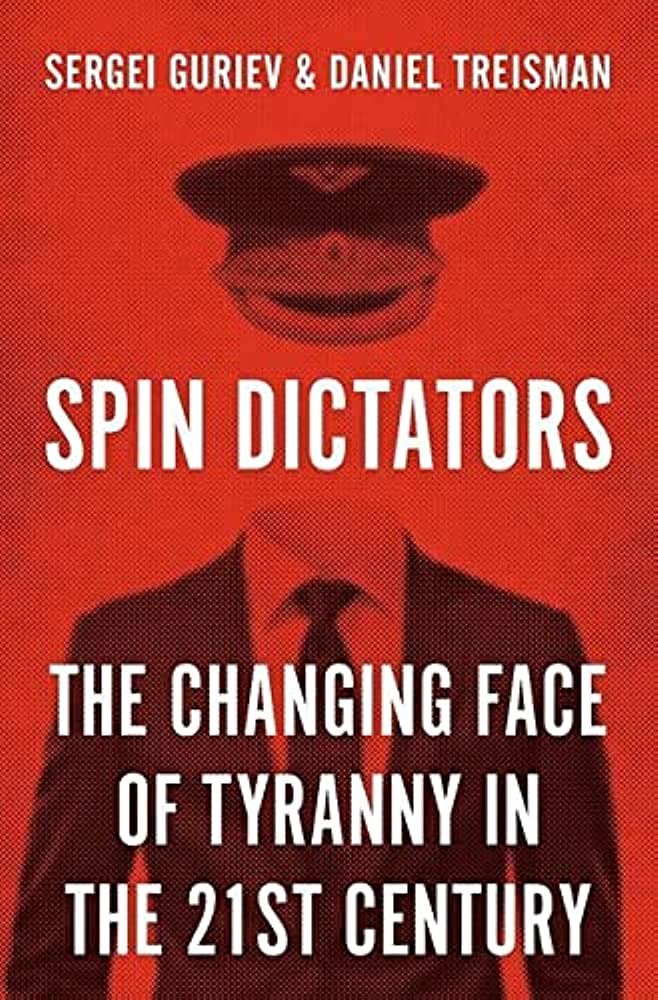
Cover of the book by Sergei Guriev and Daniel Treisman ‘Spin Dictators: The Changing Face of Tyranny in the 21st Century Hardcover’
We argue that in the last few decades, we’ve seen an increasing prevalence of a new kind of dictator which we call a spin dictator. This type of authoritarian leader uses much less overt violence and open repression. He tries to maintain control, consolidating power in the same way as a fear dictator does, but doing so by manipulating information, by co-opting the media, and by presenting an image of himself as a democratic and competent leader.
Now, of course, there are still some of the old-type fear dictators, like Bashar al-Assad in Syria, and Kim Jong-un in North Korea. We’re not saying that this fear model has completely disappeared. But we do see a change in the balance towards spin dictatorship. At the same time, spin dictatorship and manipulating the population through information control is difficult and it gets even more difficult as countries modernise and as people get access to more means of communication. So there’s a tendency for those spin dictators who managed to control the population in a more sophisticated way to reach a point where the model no longer seems to be working for them. Quite often we see them reverting to the old, openly repressive methods.
We saw that happen in Venezuela with the shift from Hugo Chávez to Nicolas Maduro. We also saw it to some extent in Turkey under Erdogan. He started out very much as what we would call a spin dictator, sophisticated, internationally respectable, trying to conceal violence when he used it. He changed pretty much after the 2016 failed coup attempt, turning into someone who intimidates parts of the population that disagree with him.
We saw that in Russia, too. Putin in his early years was a clear example of a spin dictator. But in the last five-ten years, especially since Crimea [annexation], we’ve seen him openly trying to intimidate the opposition, spread anxiety, use a rhetoric of fear and increase the level of actual repression in society, completely eliminating the independent media. Putin is centralising control to such an extent that there’s not much illusion anymore about what kind of regime it is.
Where on the spin and fear spectrum would you put modern-day authoritarian leaders? Have there been cases of extreme shifts from one side to another? What factors affect this change?
We’re familiar with the clear-cut cases of fear dictatorships. If you think of the 20th century, there are lots of examples. Stalin would fall into this camp, showing massive levels of physical repression, imprisoning political opponents. [Fear dictatorships entail] killing large numbers of the dictator’s own citizens and using rhetoric that intimidates people rather than pretending to be a liberal democratic leader.
On the other side of the scale, among spin dictators, one can find someone like Viktor Orban in Hungary who until very recently was still considered by many in the West to be leading a democratic regime. But over time, he consolidated power to such an extent that it’s extremely difficult to challenge his dominance at this point. He established control over the bureaucracy, politicised the courts and increased control over them, established various kinds of covert and indirect control over the media, often through friends. In a way, he’s created a political environment which is designed to look to outsiders and even to his own citizens as though it’s democratic. However, in effect, this system marginalises opposition voices and disadvantages any rivals that might hope to defeat Orban in an election.
We don’t have so many cases of dictators going from fear back to spin.
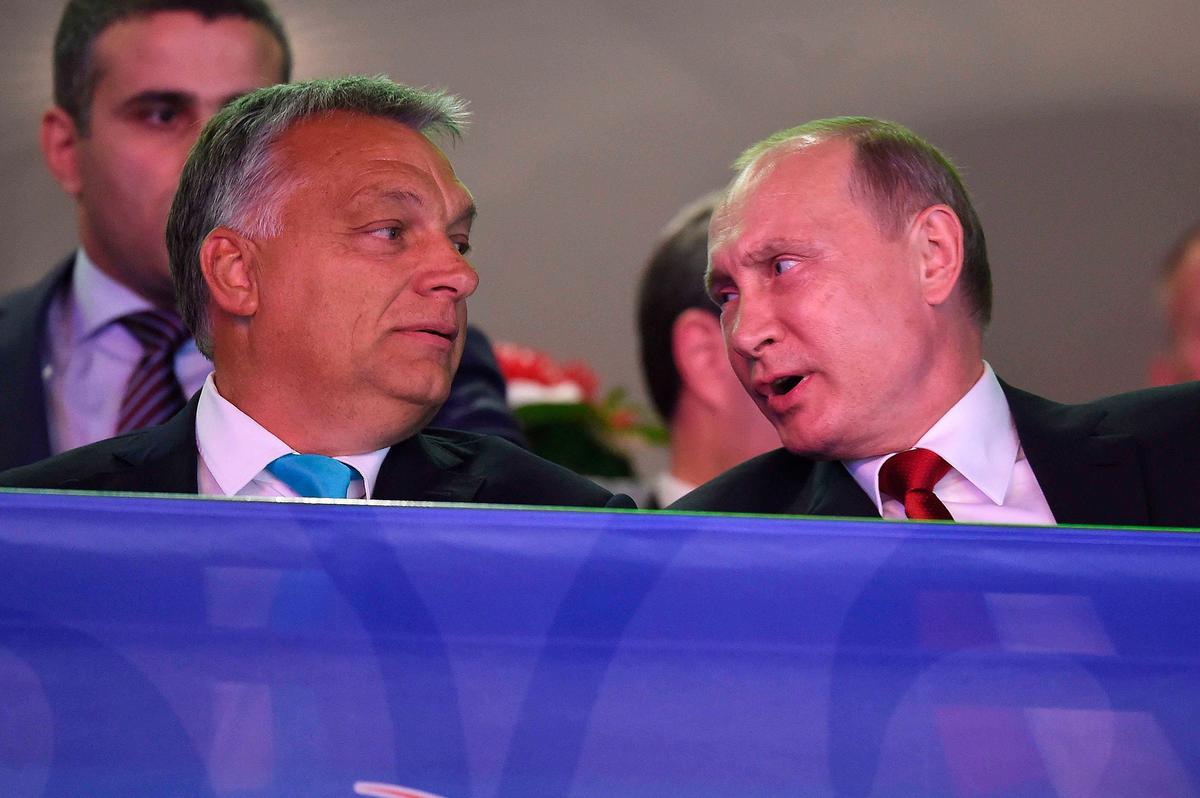
Photo: EPA-EFE / TAMAS KOVACS HUNGARY OUT
Once you revert to repressive techniques, it’s very hard to convince people that you’ve switched again and became a convinced liberal democrat all of a sudden.
On the other hand, it is conceivable that a regime of spin dictatorship could thrive and perhaps even succeed in reinventing itself with a change in leader. We could see a spin dictator who’s become more openly repressive being replaced by somebody who looks more modern and who claims to be turning the page and going down a different path.
As for Russia, in the 2000s, Putin was still behaving as a spin dictator. There were relatively few political prisoners, a very strong rhetoric of democratic accountability and quite a covert control over the media. Using Dmitry Medvedev [in the 2008 presidential election] was an attempt to go even further in the direction of spin in order to appeal to more different groups in society.
Putin’s real hope with that move was co-opting the liberal intelligentsia, the people who were quite critical of him. But it failed and that is the reason he started on this path towards gradually more and more harsh control.
How likely is a dictator to win a war? And if they lose instead, does that mean they are going to lose their power, too? What does history tell us?
Research suggests that a dictator who starts a war is more secure in his office as long as the war goes on. What happens at the end of the war? It depends on what the outcome is. If he wins the war, then he’s more secure than before. If he loses the war or there is some kind of draw, some stabilisation in which it’s not clear who has really won, then his odds go down. But not to zero.
A dictator who loses a war has odds of surviving through the next few years of about 50%. There are cases in which dictators go to war and the war goes badly, and then pretty quickly they’re thrown out. Think of General [Leopoldo] Galtieri in Argentina and the Greek generals in 1974 who provoked a war with Turkey and quickly were removed from power.
But there were also cases like Saddam Hussein in 1991, who went to war in Kuwait. He lost in a very dramatic way, but he survived for quite a few more years. If you think about wars in the Middle East, there are lots of Arab leaders who have gone to war against Israel, lost but nevertheless survived in power.
If a leader like Putin loses a war that he starts, he has about 50/50 odds of surviving in power. The big danger is in the first year after the end of a war that he loses.
If he survives through that first year, the odds [of him losing power] go down again.
The Soviet Union aftershocks
In your famous 2004 article, co-written with Andrei Shleifer, you argue that after the collapse of the Soviet Union, Russia has developed into a “normal” middle-income country. Such countries, you said, “rarely revert from democracy to full-fledged authoritarianism”. We do, however, see exactly that. When and why did this happen? Does this mean that the research you suggested was flawed and have you upgraded it since?
The data hasn’t changed. If you looked at a whole range of different variables or a whole range of different measures, Russia was far more similar to other middle-income countries economically, politically, socially than people at the time thought. We wrote that not many countries revert from democracy to full-fledged authoritarianism. Unfortunately, Russia turned out to be one of those that do. I don’t think it was a predetermined way for Russia. There are many different moments when Russia could have gone on to a different track. We ended up in one of the most extreme scenarios, which was possible, but not particularly likely in 2004.
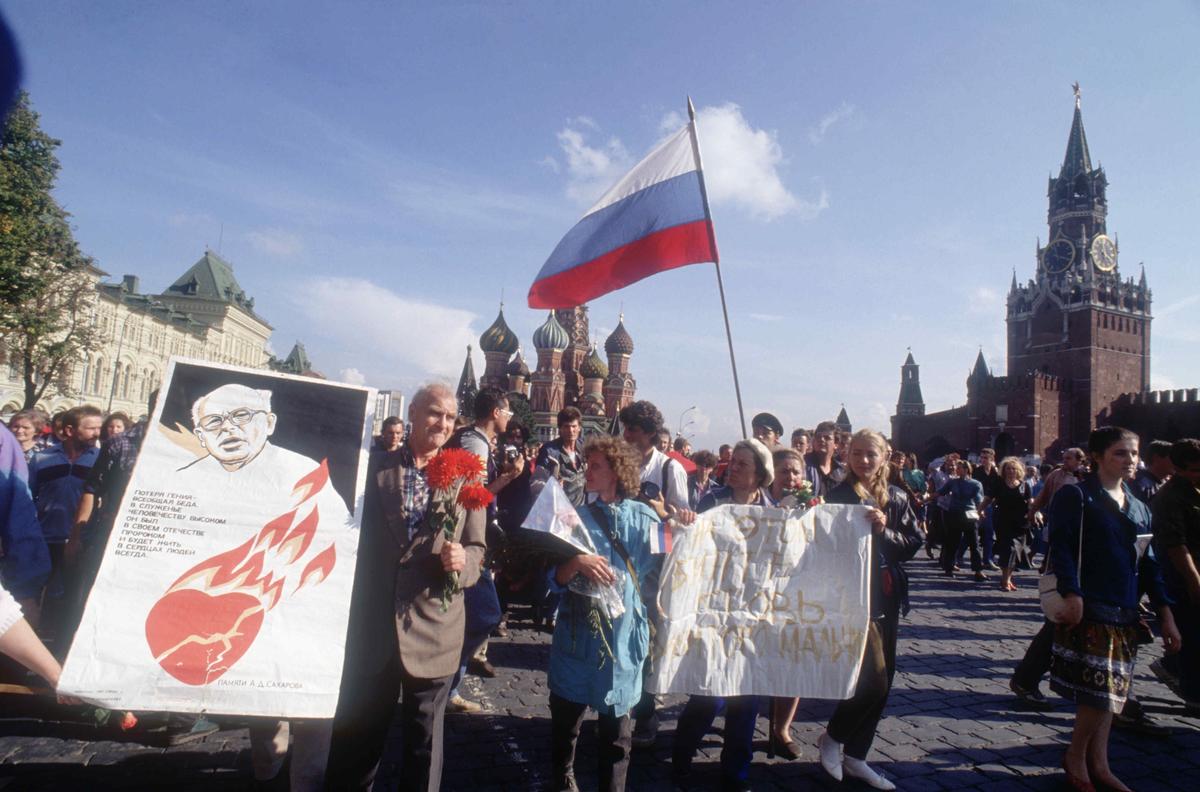
Demonstrators march in Red Square after the failed 1991 coup, August 22, 1991. Photo: Alain Nogues / Sygma / Sygma / Getty Images
Now, what caused that? In part, Putin’s survival in office through all that time. Secondly, the kind of personal trajectory that we’ve seen in Putin. In the early 2000s, he was quite pragmatic. He was suspicious of the West but open to cooperation. In fact, in 2000-2001, he was more open to cooperation than the West. He changed over time.
There were multiple elements in the early Putin. A part of him believed in macroeconomic orthodoxy and basic economics. He had a group of supporters, like Aleksei Kudrin, German Gref, who explained to Putin the basic laws of economics. He adopted a part of that.
Then he had political operatives. Cynical but sophisticated operatives like Gleb Pavlosky and Vladislav Surkov who were good at managing a flawed democratic system to consolidate control in the Kremlin.
And then he had his security services, friends, and colleagues. A part of them had embraced a conspiratorial theory in which every harm that came to the Soviet Union and then Russia was the result of malicious action by the West and in particular its security services.
What happened with Putin is that over time, he squeezed out the economic liberals, the political operatives and even the less extreme members of his security service entourage and surrounded him with that last set, who reinforced these instincts that came to dominate everything else in his thinking.
It is a personal story. The tragedy is that a whole country has taken a historic wrong turn because of the psychological evolution of one man. This case teaches us that
we can’t assume that authoritarian leaders will always do things that are rational and we can’t defend against only threats that seem to make sense to us. We have to also defend or prepare for the senseless.
And it also tells us that we need to focus on the individuals. We can’t just assume that deep structural characteristics of countries will determine everything, especially in centralised dictatorships.
Nowadays it seems pretty obvious that imperial resentment among the Russian elites played a big part in Russia’s post-Soviet transformation. Some even believe that the war in Ukraine is a long-term effect of the collapse of the USSR. Do you agree with this? Were there ways to avoid it or do all empires collapse in a similar manner?
There’s always part of society that regrets the end of the empire. And there are always people who want to revise the borders, go back for another round, to try again. But in some cases, they are a relatively small and not so influential part of society and of the political regime, in other cases, they’re a bigger part. Those voices always existed but were not very important in Russia until quite recently. In the early 90s, there was a lot of talk about the historical injustice of Crimea. But Yeltsin was not responsive to that, and his regime managed to handle that, to create an international institutional structure, a treaty agreement with Ukraine.
The British lost an empire and it led to a military confrontation in 1956, known as the Suez Crisis. But that was short and very limited. There were some other military after-effects. You could say that the war in the Falkland Islands was an aftershock of the end of the British Empire. But none of this led to tens of thousands deaths as we’re seeing now in Ukraine.
The initial disintegration of the Soviet Union was amazingly peaceful given the violence that had often accompanied the disintegration of multi-ethnic empires. And this came at the same time as the wars in Yugoslavia. The contrast between the relatively peaceful disintegration of the Soviet Union and the very bloody experience of Yugoslavia was striking. But now we do see what seems to be a distant aftershock of the Soviet disintegration.
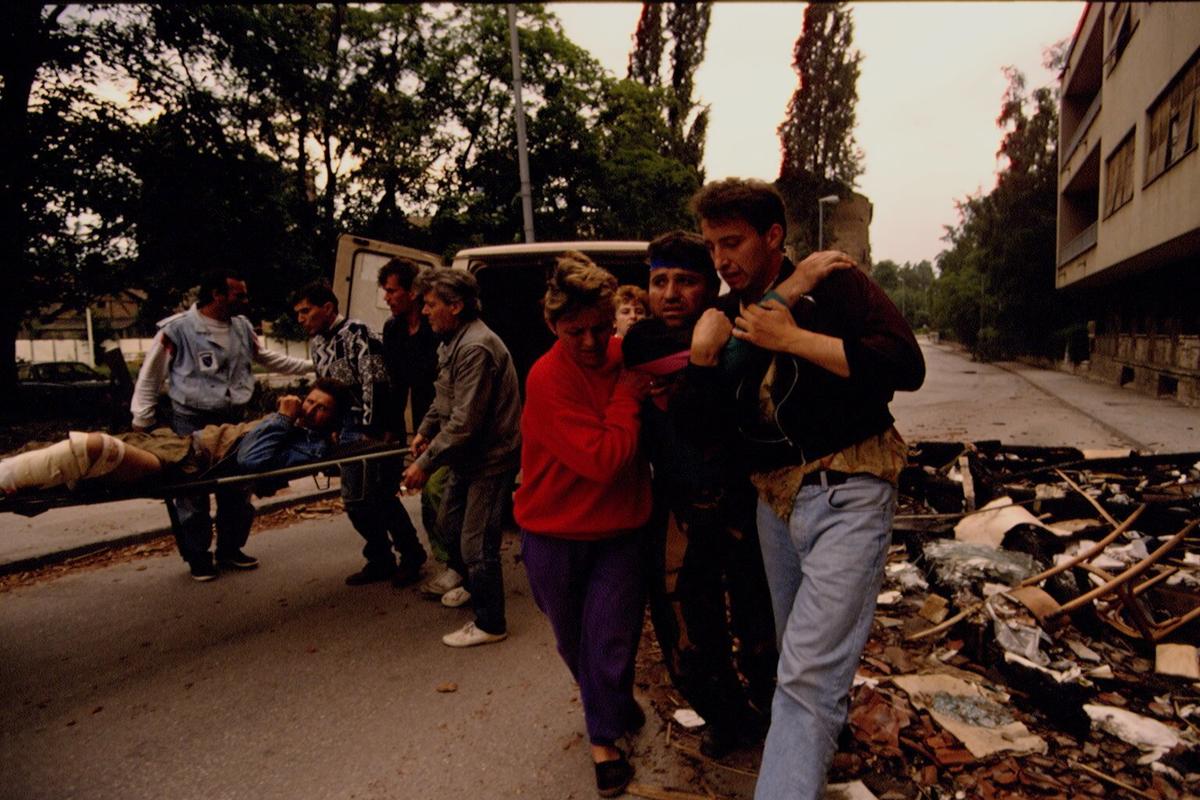
Civil war in Bosnia. Sarajevo burning after shelling, June 01, 1992. Photo: Jon Jones / Sygma / Getty Images
It was not inevitable. It’s certainly not true that all ends of the empire lead to massive military aggression by the former imperial power. The British Empire didn’t really have anything that major. Of course, the breakdown of the British Empire did lead to horrific bloodshed in India in 1947-1948. So the disintegration of empires is rarely completely smooth and peaceful. But I don’t think we can explain what’s happening in Ukraine as some kind of inevitable consequence of Russia’s history.
What happens with Russia
There are different ways the war in Ukraine could end, ranging from a peace agreement to turning into a frozen conflict. For each of these outcomes, what scenarios do you see for Russia? What outcome is the most likely one to happen in your opinion?
From the Ukrainian perspective, there’s a clear realisation that any armistice, any ceasefire, or any evolution of this into a frozen conflict will not mean peace, but it’ll mean a chance for Russia to rearm and restart a military confrontation. So from the Ukrainian side, the only hope for lasting peace is to achieve some kind of victory against Russia, to increase control of territory within the borders of Ukraine in a decisive way that would deter a quick re-initiation of the conflict by Russia. And of course, this would require continued support from the West and armament by the West so that Ukraine could at the border deter future aggression.
As to what would happen in Russia depending on the different outcomes, it’s proven extremely difficult to forecast individual cases of this type. There’s been a lot of discussion about what if the Putin regime in Russia were to fall. How would it happen? People have wondered about the relative probability of a coup against Putin or an uprising leading to the overthrow of the regime. The consensus seems to be that both of those are quite unlikely for various reasons.
It’s extremely hard to organise a coup against a leader when there are multiple military or paramilitary forces controlled by different commanders, each of whom reports directly to Putin. He has set up a structure in which it is extremely dangerous for people in his top circle to coordinate against him. So that reduces the plausibility of a coup, at least in the short run.
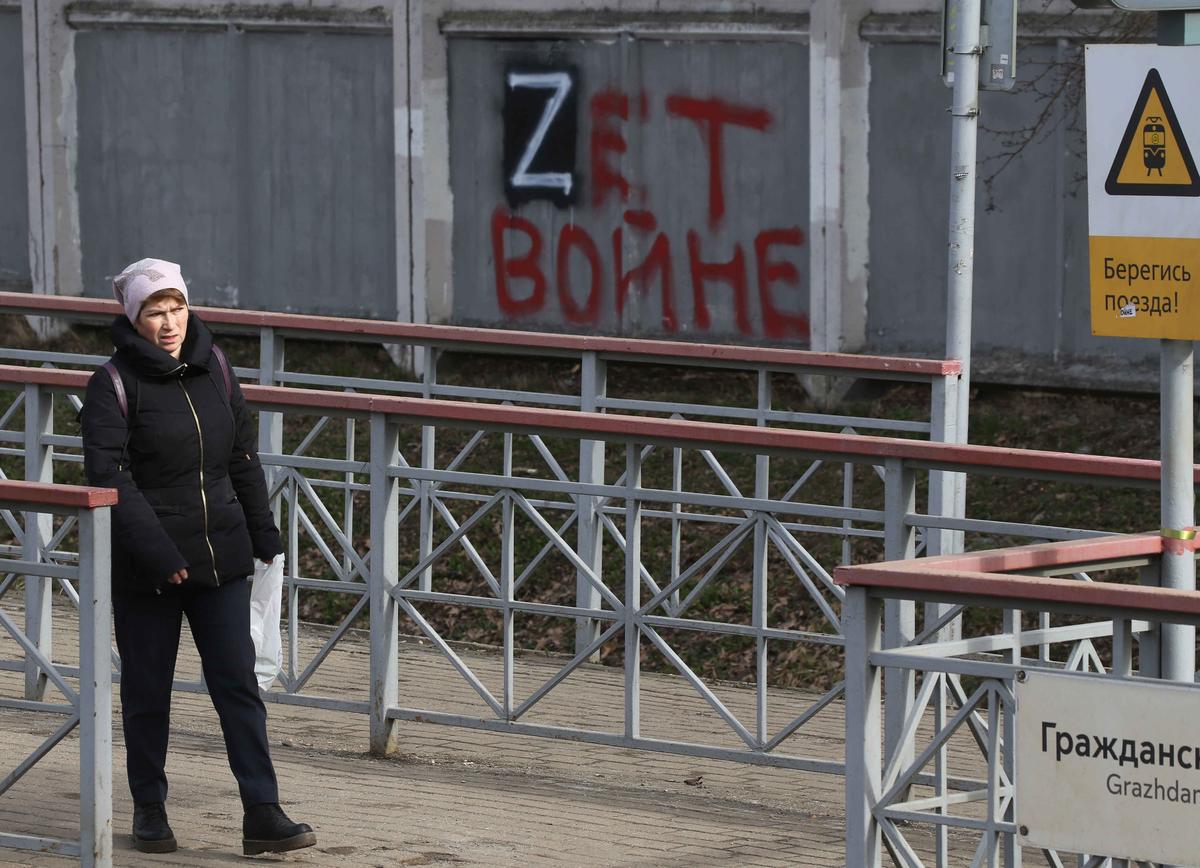
A woman passes the sign with letter "Z", a symbol of Russian invasion on Ukraine, written over "No war" on the fence, April,15,2022, Moscow, Russia. Photo: Konstantin Zavrazhin / Getty Images
The most plausible scenario for how the Putin regime could end is a comprehensive meltdown of the command structures. The regime is so hyper centralised with one man making all the important decisions or at least having to sign off on all the decisions that it’s very easy to make mistakes.
It’s possible that under the pressure of sanctions and the war, small crises in different places could link up and be exacerbated by the Kremlin’s own mistakes. This in turn could lead to an erosion of Putin’s support, a sense among the broader support base that the top decision makers can’t handle this, that they’re not in control, that they’re failing. That again could lead to some sort of splits within the regime and attempts to come up with an alternative.
It’s quite likely that Russia will remain under sanctions for decades, like Iran. This will inevitably lead to a slow deterioration of the quality of life for Russians, including a decline in incomes. Does this also decrease Russia’s chances for democratisation in the long run?
It’s hard to think a couple of decades forward, but we do know that over time in countries around the world, continuing economic modernisation and social modernisation tend to support moves to democracy and improvements in the quality of democracy.
Putin understands that modernisation is not his friend. He needs some specific types of modernisation to maintain macroeconomic stability, perhaps to produce cutting-edge weapons. But social modernisation, a broadening of attitudes, an increase in liberal values, education in humane studies and in the liberal arts probably doesn’t help. He’s been trying to freeze social modernisation or even reverse it, go back to a time with simple conservative values and an education system that supports those rather than encouraging curiosity and questioning of existing relations.
Clearly, he can stop Russia from growing. He’s set it back 10-20 years in terms of innovation and the technological level of the economy. But can he stop people from thinking for themselves? Can he reduce the level of education? We still see larger and larger numbers of people going to higher education. And can the Kremlin really control the curricula to such an extent that these people in colleges don’t learn to think for themselves, but instead learn to think in the Kremlin way? I don’t know about that.
Can he really control the Internet, social networks, the kind of online civil society that’s emerged? Again, it’s possible he can. China is certainly trying to do this. Will it work? I’m not sure. Putin will need to prevent the growth of the civil society which might otherwise create the ground for putting pressure on the regime to move in a democratic direction. But at the same time, it seems unlikely that he is going to stay in power with these policies for the next 20 or even 10 years.
What happens with the world
In 2018, you published an article arguing that, despite widespread concerns, the world is not seeing a democratic decline. At the same time, NGOs and think tanks such as Freedom House have been saying the opposite, claiming that the number of democracies is in fact going down. What’s the reason for these opposite conclusions? How is Putin’s war going to affect the distribution of democratic regimes all over the world?
Today I would say there has been some limited backsliding in the democratic camp. I think that’s largely the result or the after-effect of the extremely major increase in the number of democracies in the preceding period. In what’s called the third wave of democracy, between 1974 and around 2015, the number of democracies in the world shot up. The proportion of democracies in the world, according to data from V-Dem, went up from 23 to 54%. Now, V-Dem says that since 2015, the proportion of democracies has dropped from 54 to 50%.
So there is some limited regression, but only to the level that we saw globally in the 1990s, which was a time when the discourse was about the victory of liberal democracy, the End of history, the disappearance of alternative models of politics in society.
We should be realistic and recognise some backsliding. But we shouldn’t forget that it came after this dramatic increase. Also not all, but a lot of the backsliding is occurring in countries that were not as economically developed as the average democracy before that.
What stabilises and consolidates democracy is, first of all, a relatively high level of economic and social modernisation. And secondly, the long experience of democracy. Democracies tend to consolidate over time. Then it’s not surprising that we see a bit of sliding backwards after a massive step forward.
Поддержать независимую журналистику
What lessons are dictators and autocrats going to learn from this war? Is this going to give way to more conflict, for instance, a clash between China and Taiwan?
It’s very important how this war ends. Dictators around the world are watching. How this war ends will affect how President Xi Jinping thinks about China’s course over the next 10 years. If the war ends with a clear defeat for Putin, people will draw the message that the West can come together and exert pressure against aggressive leaders who simply tried to snatch territory from their neighbours.
On the other hand, if the war ends in some kind of frozen conflict or even a clear gain for Russia in the sense that it’s able to consolidate control over newly seized territories then the message will be encouraging to autocrats around the world who might be tempted to try something similar.
The West needs to worry about that and invest the necessary resources now to make sure that Ukraine wins rather than having to invest far more in defence and in efforts to rebuild the international legal order if Ukraine were to lose.
Делайте «Новую» вместе с нами!
В России введена военная цензура. Независимая журналистика под запретом. В этих условиях делать расследования из России и о России становится не просто сложнее, но и опаснее. Но мы продолжаем работу, потому что знаем, что наши читатели остаются свободными людьми. «Новая газета Европа» отчитывается только перед вами и зависит только от вас. Помогите нам оставаться антидотом от диктатуры — поддержите нас деньгами.
By clicking the Support button, you agree to the processing of your personal data.
To cancel a regular donation, please write to [email protected]
